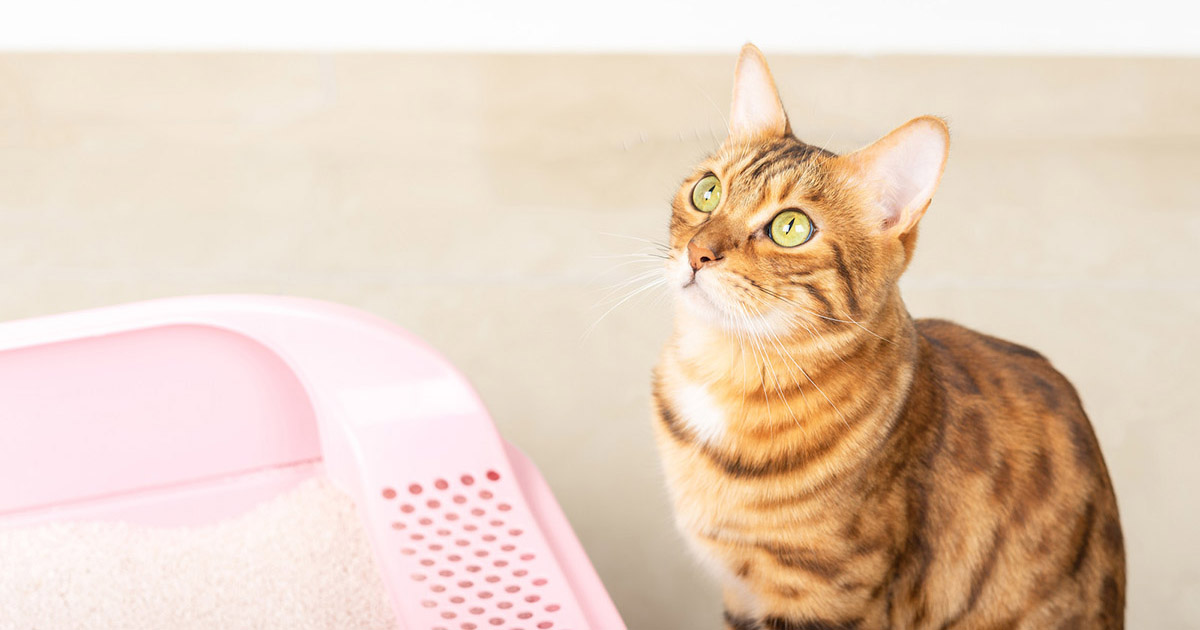Reasons You Must Never Flush Cat Poop Down Your Toilet - Critical Information
Reasons You Must Never Flush Cat Poop Down Your Toilet - Critical Information
Blog Article
The article author is making several good pointers about How to Dispose of Cat Poop and Litter Without Plastic Bags overall in the content down below.

Introduction
As pet cat owners, it's important to bear in mind how we take care of our feline buddies' waste. While it may seem hassle-free to purge cat poop down the bathroom, this technique can have detrimental effects for both the setting and human health.
Alternatives to Flushing
Luckily, there are more secure and a lot more liable ways to deal with feline poop. Take into consideration the adhering to choices:
1. Scoop and Dispose in Trash
One of the most common method of throwing away feline poop is to scoop it into a naturally degradable bag and toss it in the trash. Make certain to use a devoted trash scoop and take care of the waste immediately.
2. Use Biodegradable Litter
Select biodegradable pet cat trash made from products such as corn or wheat. These clutters are eco-friendly and can be securely dealt with in the trash.
3. Hide in the Yard
If you have a yard, think about hiding feline waste in an assigned location away from veggie yards and water resources. Make sure to dig deep sufficient to avoid contamination of groundwater.
4. Set Up a Pet Waste Disposal System
Purchase a family pet waste disposal system specifically made for cat waste. These systems utilize enzymes to break down the waste, minimizing smell and ecological effect.
Wellness Risks
In addition to ecological worries, purging pet cat waste can likewise present health and wellness risks to humans. Pet cat feces may consist of Toxoplasma gondii, a bloodsucker that can trigger toxoplasmosis-- a possibly extreme illness, particularly for pregnant women and individuals with damaged body immune systems.
Ecological Impact
Flushing pet cat poop presents hazardous pathogens and bloodsuckers into the supply of water, posing a considerable risk to water ecosystems. These pollutants can negatively affect marine life and concession water top quality.
Final thought
Liable pet possession extends past providing food and sanctuary-- it also entails proper waste monitoring. By refraining from purging cat poop down the commode and opting for alternate disposal approaches, we can minimize our environmental impact and protect human wellness.
Why You Should Never Flush Cat Poop Down the Toilet
A rose by any other name might smell as sweet, but not all poop is created equal. Toilets, and our sewage systems, are designed for human excrement, not animal waste. It might seem like it couldn’t hurt to toss cat feces into the loo, but it’s not a good idea to flush cat poop in the toilet.
First and foremost, assuming your cat uses a litter box, any waste is going to have litter on it. And even the smallest amount of litter can wreak havoc on plumbing.
Over time, small amounts build up, filling up your septic system. Most litter sold today is clumping; it is made from a type of clay that hardens when it gets wet. Ever tried to scrape old clumps from the bottom of a litter box? You know just how cement-hard it can get!
Now imagine just a small clump of that stuck in your pipes. A simple de-clogger like Drano isn’t going to cut it. And that means it’s going to cost you big time to fix it.
Parasitic Contamination
Believe it or not, your healthy kitty may be harboring a nasty parasite. Only cats excrete Toxoplasma in their feces. Yet it rarely causes serious health issues in the cats that are infected. Most people will be fine too if infected. Only pregnant women and people with compromised immune systems are at risk. (If you’ve ever heard how women who are expecting are excused from litter cleaning duty, Toxoplasma is why.)
But other animals may have a problem if infected with the parasite. And human water treatment systems aren’t designed to handle it. As a result, the systems don’t remove the parasite before discharging wastewater into local waterways. Fish, shellfish, and other marine life — otters in particular — are susceptible to toxoplasma. If exposed, most will end up with brain damage and many will die.
Depending on the species of fish, they may end up on someone’s fish hook and, ultimately on someone’s dinner plate. If that someone has a chronic illness, they’re at risk.
Skip the Toilet Training
We know there are folks out there who like to toilet train their cats. And we give them props, it takes a lot of work. But thanks to the toxoplasma, it’s not a good idea.

I was made aware of that article about How to Dispose of Cat Poop and Litter Without Plastic Bags from a friend on another blog. I beg you set aside a second to promote this blog entry if you enjoyed reading it. Thank you for your time. Visit again soon.
Call Today Report this page